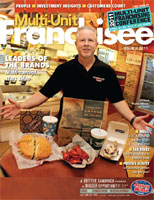
Glenn Miller's first look at the franchising business came in the early 1990s, when the British Chartered Accountant's brother, an attorney, wound up with six Arby's in Central Illinois. It didn't take a rocket scientist to see some of the problems that needed fixing.
John Carroll
For more than 20 years Rick Huffman and his two partners--Sam Catanese and Marc Williams--have been building things. They've developed shopping centers, hotels, apartment complexes, a large stock of affordable housing units, and Branson Landing, a $400 million mixed-use project in Branson, Mo.
John Carroll
One of my greatest concerns is agents who are supposedly working for the tenant while accepting a commission from the landlord. I have hesitated writing this article for months lest it be considered an attack on real estate salespeople or agents. Nothing could be further from the truth. If it weren't for real estate agents and brokers, landlords would have half-empty buildings. My purpose here is to enlighten franchise tenants, open some eyes, and let you decide for yourself about this important issue.
Dale Willerton
As a young man, Army veteran and athlete Randy Merrill followed his natural interests into training and coaching at some of the nation's top fitness chains. The Atlanta native became one of the top producers for American Fitness Centers (later bought out by Bally Total Fitness) and then helped expand Australian Body Works, now known as LA Fitness, from five to 12 locations in the Atlanta market.
Debbie Selinsky
The Great Recession has shifted the thinking and behavior of consumers, forcing franchise brands to respond with changes of their own as they try to keep up with the new normal. Indeed, no discussion of franchise trends in 2011 and multi-unit operators' favorite brands can begin without a nod to the recent economic turmoil and its residual short and long-term effects.
Kerry Pipes
Many restaurant operators and dealmakers are hoping for a return to the pre-2008 environment, when multiples were robust, liquidity was flowing, equity was prolific, and debt capital was plentiful.
Dean Zuccarello
You might not know it from reading the news, but there's a lot of money out there looking for a good home, and high-performing multi-unit franchise companies have become targets for private equity investors. Estimates of available private equity peg the pent-up funds at about $500 billion, more than enough pie for most multi-unit franchisees to get a slice--if they have what it take to appeal to investors.
Eddy Goldberg
In case you haven't heard, franchises hold a place of honor in the world of data thieves. In fact, chains are the favorite target of hackers trying to steal payment card information. The most recent figures from Visa indicate that up to 97 percent of data compromises are suffered by smaller merchants and "specifically franchisees"--particularly those in the restaurant, clothing, sporting goods, and hotel industries.
David Ellis
For years, Jeff Orlando has read with fascination the articles in franchise and business magazines about super-successful entrepreneurs. "It's amazing to read about these guys who have 87 Burger Kings and 92 Wendy's units and these unbelievable homes and lifestyles," says the Killeen, Tex., resident. However, he adds, it's also nice to read about "regular guys like me," who choose to define their success in a different way.
Debbie Selinsky
Back in 1981, with the prime borrowing rate at an all-time high of 21 percent, most bank customers felt that those cameras they have in banks to photograph robbers should, in all fairness, be pointed at the "real" crooks: the lending officers. At such rates most companies found it difficult (if not impossible) to borrow money. Actually, it wasn't so hard to borrow money--it's just that no one could repay it.
Steve LeFever
In the course of my speaking and consulting engagements, I've found that many franchisees have given up even trying to get meaningful references on promising job applicants. From the frustrating experiences recounted to me by others and my own company's policy, I know that most employers will report only dates of employment and the starting and ending wage or salary figures.
Mel Kleiman
Until your organization figures out how to drive higher sales and profits at existing stores, adding new units is very risky. The only time McDonald's got in real trouble came when they focused on growing sales by adding new units while neglecting to grow same store sales.
Jack Mackey
A financial legacy can provide an incomparable "leg up" to offspring--if they are adequately prepared. However, inelegant handling of the training stage can create generations of enmity, or breed unmotivated individuals with an entitlement attitude. A family business (especially if some offspring participate in day-to-day operations while others do not) presents even more complexity, particularly in the area of "fairness." Following are a few things to think about as you grapple with starting the preparation process.
Carol Clark
Andy Lanz got started in franchising right out of the University of Wisconsin in Madison. With the help of his parents, the newly minted economics graduate purchased a Cousins Subs franchise in nearby Verona. Then he added a Figaro's Italian Pizza franchise as well as a Chocolate Shoppe Ice Cream operation, and put them all together inside his first 2,500-square-foot store.
John Carroll











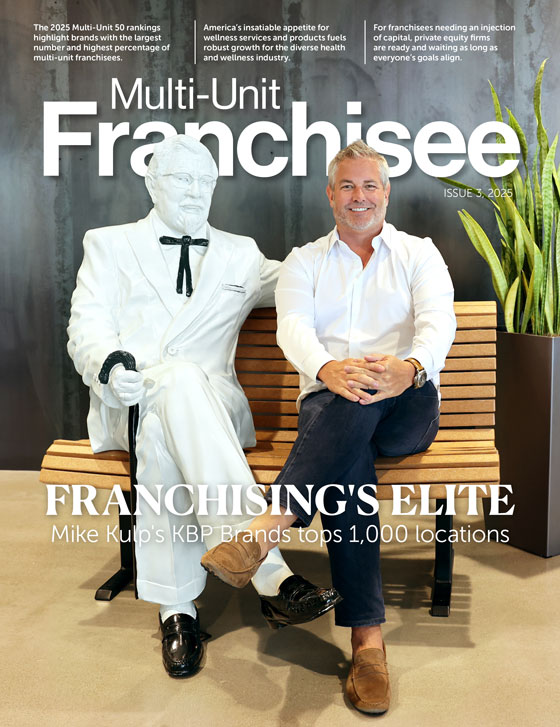
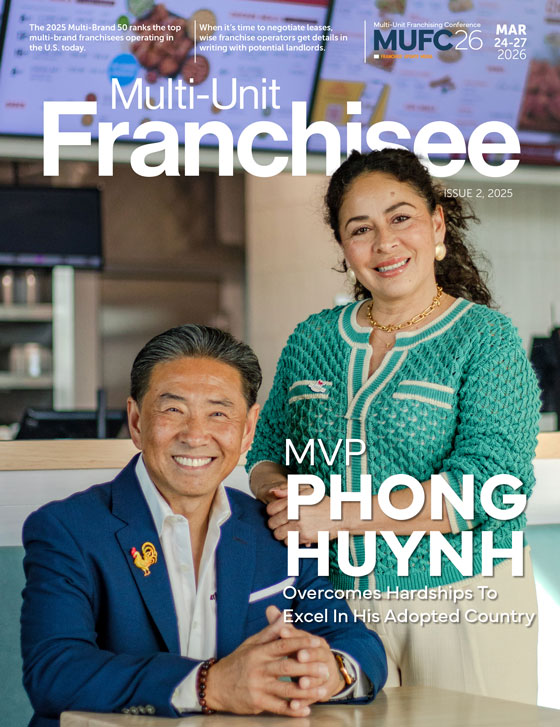
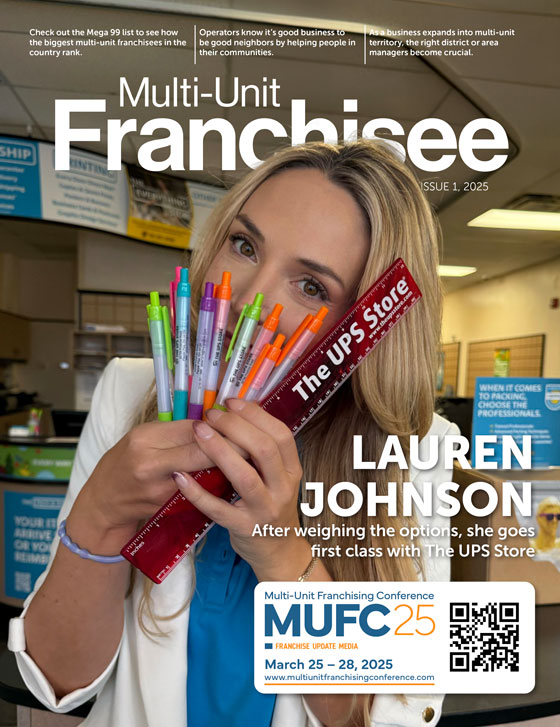

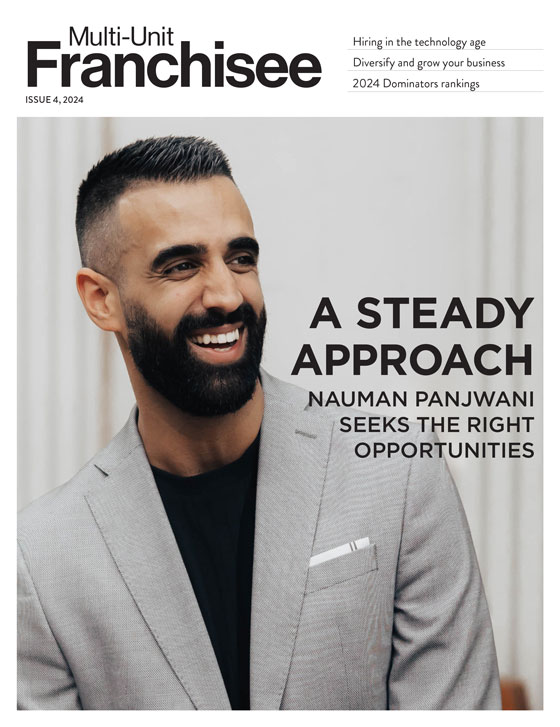

 The multi-unit franchise opportunities listed above are not related to or endorsed by Multi-Unit Franchisee or Franchise Update Media Group. We are not engaged in, supporting, or endorsing any specific franchise, business opportunity, company or individual. No statement in this site is to be construed as a recommendation. We encourage prospective franchise buyers to perform extensive due diligence when considering a franchise opportunity.
The multi-unit franchise opportunities listed above are not related to or endorsed by Multi-Unit Franchisee or Franchise Update Media Group. We are not engaged in, supporting, or endorsing any specific franchise, business opportunity, company or individual. No statement in this site is to be construed as a recommendation. We encourage prospective franchise buyers to perform extensive due diligence when considering a franchise opportunity.